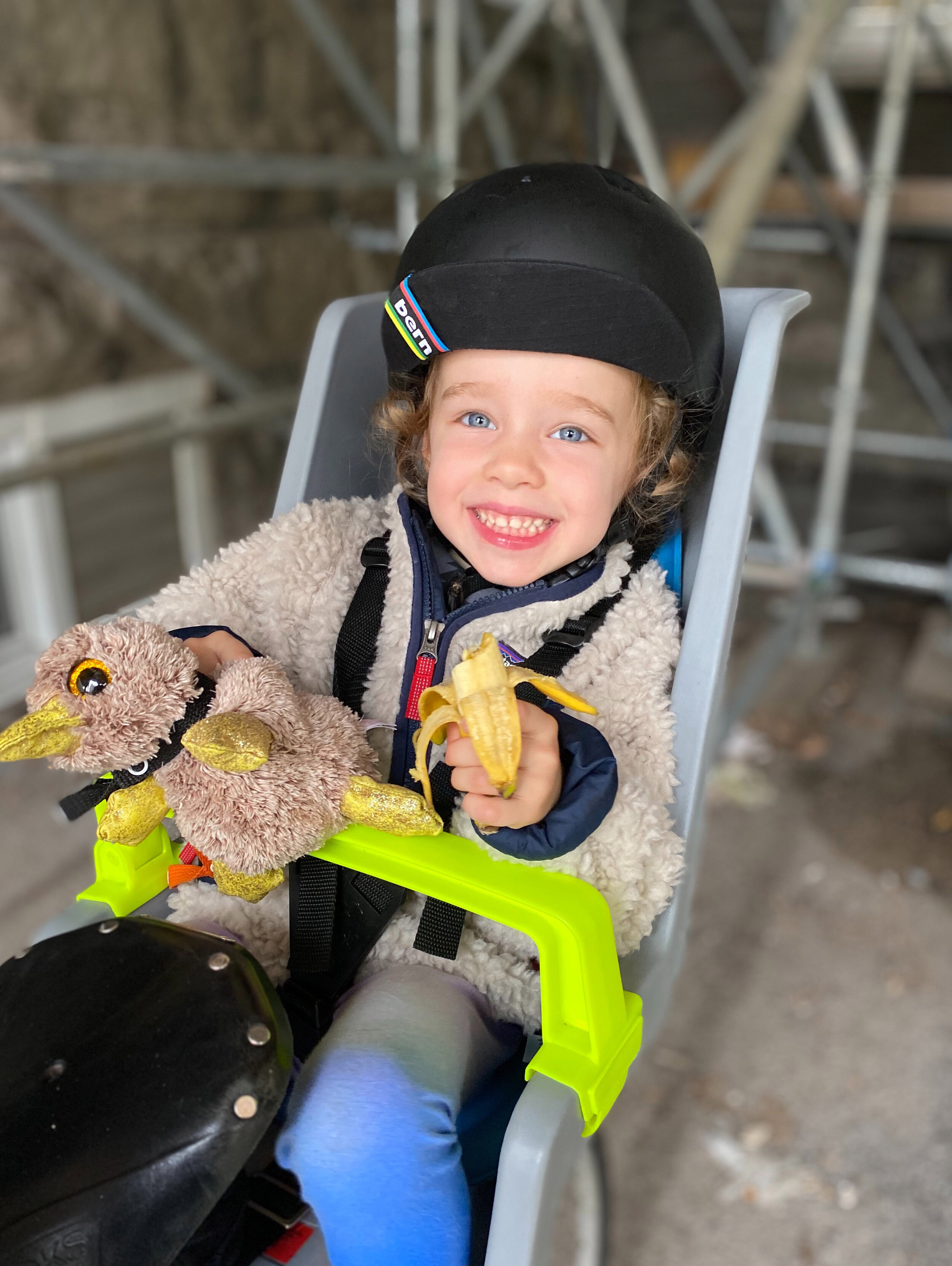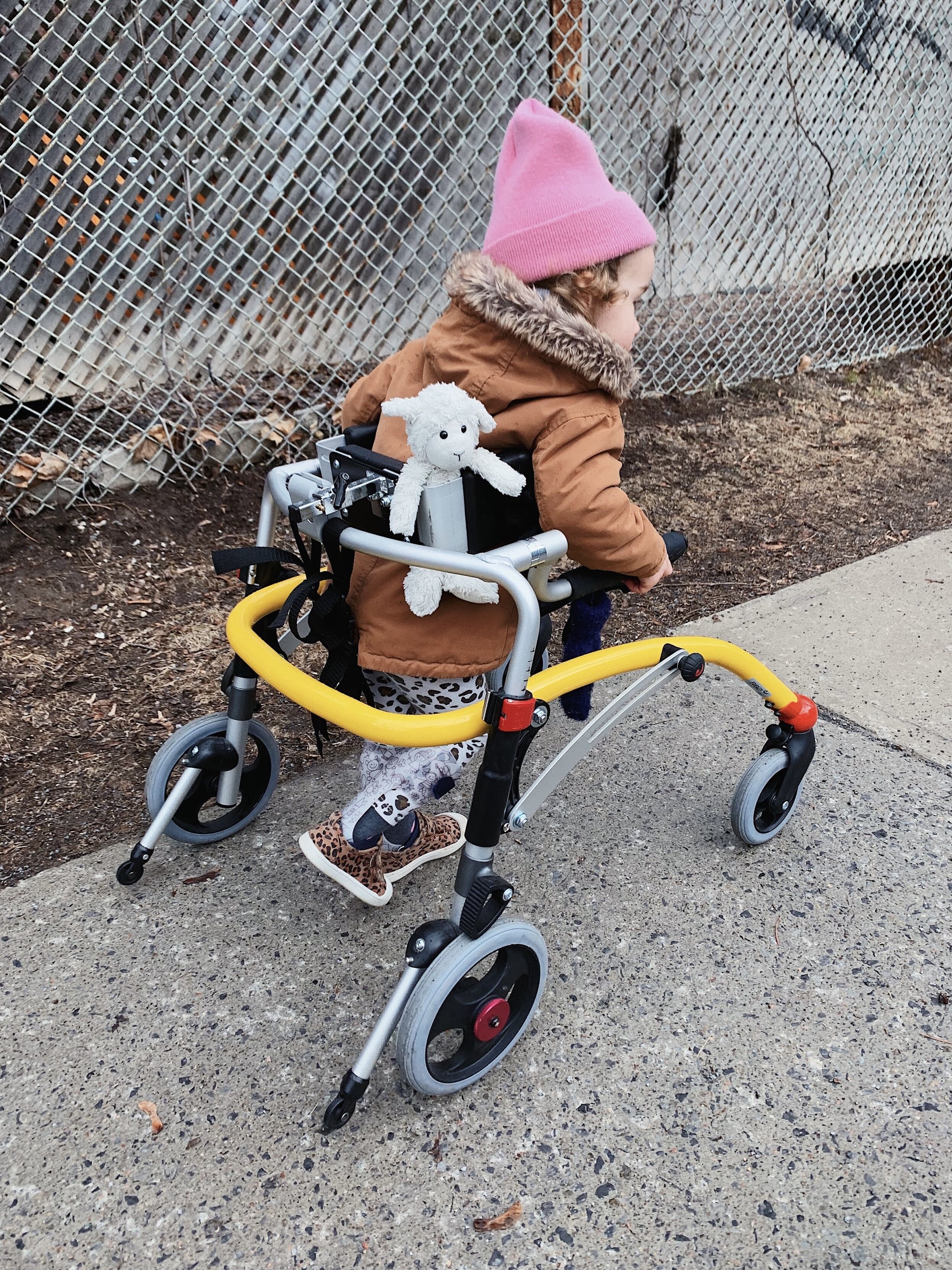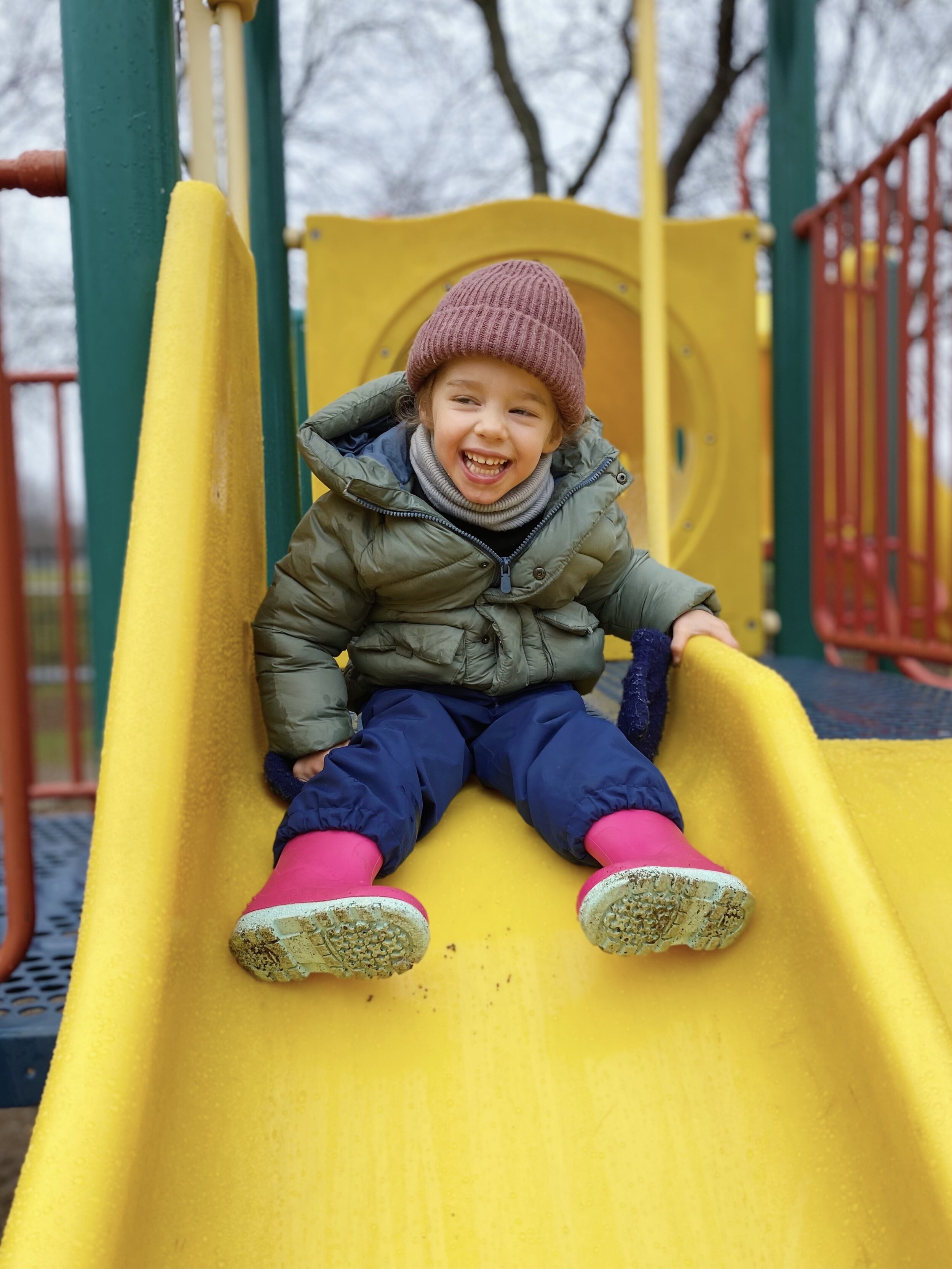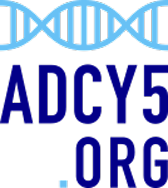Community
Olive’s Story
Hi! Can you start by sharing a little about yourself and your family?
We lived in NYC with our funny, tender and amazing Olive. For the first years of her life, where she was diagnosed a little before turning 2, but Olive and her parents now live in Canada together, where she loves to play with her friends at daycare, run with her walker in the green alleys, and have kitchen dance parties with her grandparents.
Can you tell us about the first symptoms you noticed? When did you first realize there might be something different or unusual?
We, her parents, noticed a delay in reaching her first physical milestones like sitting up, crawling and standing early on. It was mostly low tone in her body, with high tone in her legs, which all made keeping her balance a little tricky. She started physical therapy at 7 or 8 months old, but the trigger event for us was a trip to see family at 18 months. That's when we noticed multiple 'episodes' of involuntary movements (scissoring legs, facial grimaces, arms tightening with fists twisted and thrown around) that we now believe were triggered by the excitement and fatigue of traveling. That prompted us to see her neurologist immediately when we got home.








What was your journey to getting a diagnosis? What specialists or testing did you go through, and how long did it take to get the result?
Our paediatricians acknowledged her physical delays, but beyond setting us up with Early Intervention therapy, they never diagnosed anything. Her neurologist noticed the speech delay, but she and other specialists (we saw a lot) gave her top cognitive scores — Olive has always been clever, observant and social since she was a baby. Olive had an MRI a little after turning 1, which was scary because of the anesthesia, but that didn’t lead to anything. After an EEG scan at 18 months ruled out epilepsy, and the neurologist didn't think it was cerebral palsy, we were sent to the geneticist. It took months to get the genetic testing approved by insurance, and when it was approved we had to wait another 3-4 months to get her results as well as both of ours. She was diagnosed with ADCY5‐related movement disorder (ADCY5‐RMD) (c.1252C>T p.R418W), which is 'de novo' as neither of us were carriers. The results also showed both Olive and her mama had an unrelated, unknown genetic variation (we think it's just extra specialness) and that Olive showed a mosaic (really low % of cells) condition that can affect muscles — but if/what effect that has is still to be determined.
While the diagnosis was a shock, it also didn't feel very real at the time because it came when Olive was still so little. It was also explained as being variable and having many unknowns, so we didn't know how/how much it would affect her. It really has hit us more as she’s grown and her limitations have become more apparent.
“Our biggest win — and this greatly makes up for everything else — is just how lucky we got with Olive: despite all the challenges her body puts her through, she is so happy, determined, and strong, and to top it all off, she’s clever and goofy with an enchanting personality.”
Describe how you live with ADCY5‐related movement disorder (ADCY5‐RMD) day-to-day: how is your routine similar or different to others? What are some ‘wins’ and ‘lows’ right now?
At 3 years old, Olive’s biggest day-to-day differences are mostly mobility-related: the fact that she needs a walker to walk, that she gets knocked over by bad movements, or that she isn't as articulate when speaking. But our daily routine is also similar to others: Olive loves having fun at regular daycare, hanging out with friends, taking trips — it just means many creative hacks and logistics on our end to make sure we have the right wheels, support or carrier wherever we go. Our biggest needs are the extra arms needed for Olive, and extra time needed for coordinating all the amazing people working in the background to integrate and help her thrive.
As a family, our shared challenge is the lack of sleep on the nights when the movements keep her up. As parents, our biggest challenge right now is accepting what is, avoiding comparisons and worrying about others’ projections and perceptions.
Our biggest win — and this greatly makes up for everything else — is just how lucky we got with Olive: despite all the challenges her body puts her through, she is so happy, determined, and strong, and to top it all off, she’s clever and goofy with an enchanting personality.
What are you excited about when you think of the future? How has your outlook changed (before and since the diagnosis), and what gives you hope?
We feel so fortunate to have benefited from testing, medication and support from the very beginning, enabled in part by this great community. We are also realistically optimistic about future advances to come — just think of how much has changed in the past decade!
Without being corny, the biggest change this experience has brought us has been to our outlook — we're more compassionate, accepting, aware, involved — and especially grateful. It's changed how we view disability, accessibility, and even ableism. Of course we're worried about all the limitations to come, but the speed at which research and genetics are moving also give us a lot of hope.
More Patient Stories
Maya
We welcomed our first child, Maya, into the world in February 2013. She was strong, happy, healthy and ‘typical’ in every way at birth. Our first gut feeling…
Lilly
Lilly is using her personal experience and writing abilities to be an advocate for the Rare Disease and disability communities. She is currently earning her Master of Arts…
Newly Diagnosed?
The most important thing our rare ADCY5‐related movement disorder (ADCY5‐RMD) community needs to do is come together to build knowledge and collect information.




